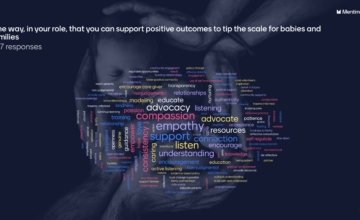This report by Child Trends and Safe Babies™, a program of ZERO TO THREE, presents findings from interviews with various child- and family-serving agencies and organizations across six states (Colorado, Michigan, Nebraska, New York, South Carolina, and Washington). Current prevention and promotion efforts for families with infants and toddlers were examined and how states leverage newer opportunities such as the federal Family First Prevention Services Act (Family First Act). The report also explores the facilitators and challenges states face as they seek to promote the holistic well-being of infants, toddlers, and their families and prevent maltreatment and entry into foster care.
Broad findings emerged from the interviews:
- Prevention is a priority issue for child welfare agencies and their partners;
- Prevention efforts are grounded in collaborative approaches, a focus on equity, and family engagement; and
- As prevention efforts evolve, states are navigating funding complexities, misalignment between the available service array and families’ needs, and workforce capacity challenges.
The National Infant-Toddler Court Program was made possible through the support of the Health Resources and Services Administration (HRSA) of the U.S. Department of Health and Human Services (HHS) as part of an award totaling $7,560,000 with 0 percent financed from non-governmental sources. The contents are those of the authors and do not necessarily represent the official views of, nor an endorsement by, HRSA, HHS, or the U.S. Government. For more information, please visit HRSA.gov.



